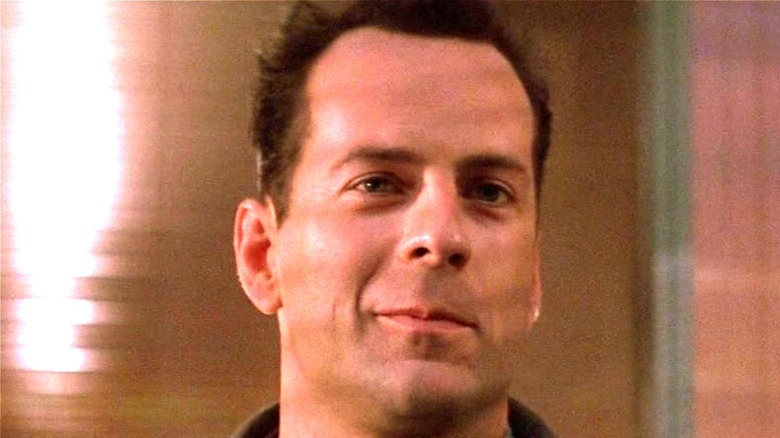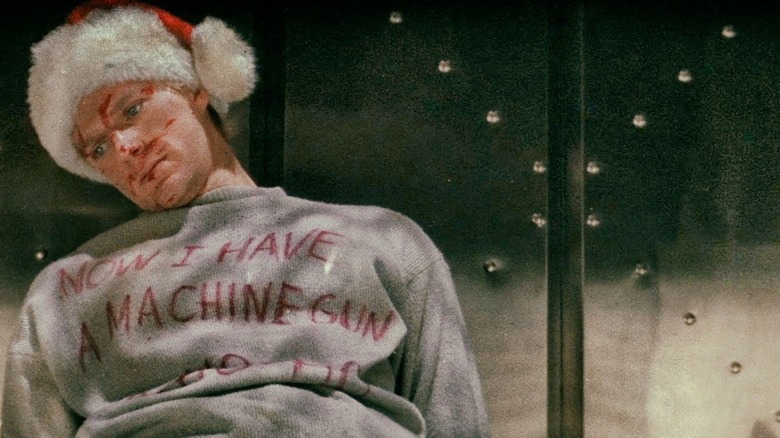Die Hard Writer Confirms What We Suspected All Along About The Bruce Willis Hit
When it comes to action movies with a sense of humor, "Die Hard" has to be somewhere near the top of the list. The 1988 film, directed by John McTiernan, launched a franchise and shot Bruce Willis into megastardom. It blew up the box office (along with Nakatomi Plaza), snagging $142 million in worldwide ticket sales (via Box Office Mojo). Everything about "Die Hard" is over the top in the best way — including a sublime villain in German terrorist Hans Gruber, deftly performed by the late Alan Rickman.
Set in Los Angeles, notably on Christmas Eve, most of the action takes place inside a tall building. When a group of terrorists (or exceptional thieves) takes an office holiday party hostage, one of the captives turns out to be John McClane's (Bruce Willis) wife, Holly (Bonnie Bedelia). So John takes on the whole gang by himself, and all hell breaks loose. The proceeding battle is fun to watch, and it also might convince you to skip your next office holiday party.
Over the years, a fierce debate has surfaced over whether or not "Die Hard" is actually a Christmas movie. Since there are no clear-cut criteria for a Christmas movie, this argument seems impossible to settle — which makes it perfect for the Internet. But one of the screenwriters himself has offered a definitive perspective.
Die Hard is absolutely a Christmas movie, maybe
In an interview with Collider, "Die Hard" screenwriter Jeb Stuart claimed, "Absolutely, it's a Christmas movie." Well, there you have it. Case closed, right? Sort of. Stuart goes on to imply that he might go back and forth with his answer, depending on whichever response will get more people to watch the movie around Christmas.
So where does that leave us with the big debate? Let's consider the breadcrumbs. The movie takes place on Christmas Eve. There's a running holiday theme, including when McClane kills a bad guy, dresses him in a Santa hat, and sends him down the elevator with a "ho-ho-ho" message for Gruber. Additionally, the film ends with a Vaughn Monroe version of "Let It Snow" playing over the credits. These are hard-to-miss clues, even for the Internet.
On the flip side, the movie was initially released in theaters in July, which by most calendars is nowhere near Christmas. Also, the story itself essentially has nothing to do with the holiday — unless you include murder and mayhem in your celebrations.
Clearly, there's an argument to be made either way. Though at least now we have Stuart on record admitting it's a Christmas movie, regardless of his motives. But the more important question has to be this: With a movie as good as "Die Hard," does it really even matter?
If you want to refresh your memory of the movie and decide for yourself, you can check out "Die Hard" and all of its sequels on a variety of streaming platforms.

